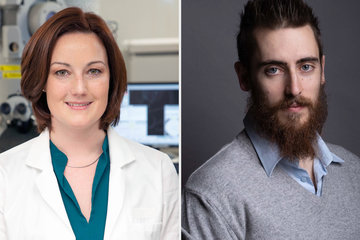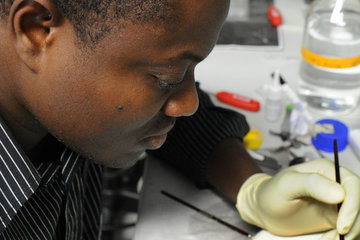Application start for Max Planck Schools
An interdisciplinary, customized PhD programme with the best supervision and five years of financial support: from November 1, students with either outstanding Bachelor or Master degrees can apply for three new graduate schools in Germany.

The Max Planck School Matter to Life opened it application portal on October 17. Applications for the Max Planck School of Cognition and the Max Planck School of Photonics will be open as of November 1. The requirements and details of the application can be found at maxplanckschools.org.
The Max Planck Schools are innovative, networks for doctoral training across different organizations and different locations in Germany aimed attracting outstanding students worldwide. The successful candidates can devote their PhDs to new, interdisciplinary and forward-looking research questions in the field of basic and applied-oriented research.
The first batch of students will start in 2019 and benefit from intensive supervision by internationally renowned scientists. In addition, they have at their disposal an excellent infrastructure at various research institutions and universities, which will enable them to focus on their own research interests in the best possible manner. Admission to a Max Planck School entails financial support for up to five years. The schools themselves receive 45 million euros in funding from the Federal Ministry of Education and Research (BMBF) as well as funds from the participating non-university research institutions in a similar amount. .
At the schools, where top scientists from universities and non-university research organisations work together in alliances across Germany, excellent university graduates from all over the world complete their doctorates where possible also in a direct or 'fast track' procedure, i.e. including the master's degree. All academic degrees obtained in the schools are awarded by the participating universities.
Joint project of universities and research institutions
The Schools represent a new type of cooperation in graduate education. They complement the very successful regional cooperation formats, such as the Graduate Schools of the Excellence Initiative of the Federal Government and the Federal States or the International Max Planck Research Schools (IMPRS), with a national network that bundles the excellence in innovative research fields distributed across Germany.
In December 2017, a selection committee led by the President of the Max Planck Society, Martin Stratmann, and Horst Hippler, at the time President of the German Rectors' Conference, selected the three forward-looking pilot schools from eight proposals featuring a broad range of topics. Three representatives of each institution - the universities, the Max Planck Society, and other non-university research institutions (Fraunhofer Society, the Leibniz Association, and the Helmholtz Association) discussed the submitted proposals and mutually agreed on the three pilots.
"The Max Planck Schools as cross-regional research and education networks bring together the best minds from German universities, the Max Planck Society, and other non-university research institutions. I am very pleased that the initiative stands on such broad shoulders in the German scientific landscape," said Max Planck President Martin Stratmann. "Germany has top scientists at various locations. We are now pooling this excellence in order to make it more visible.”
BA












